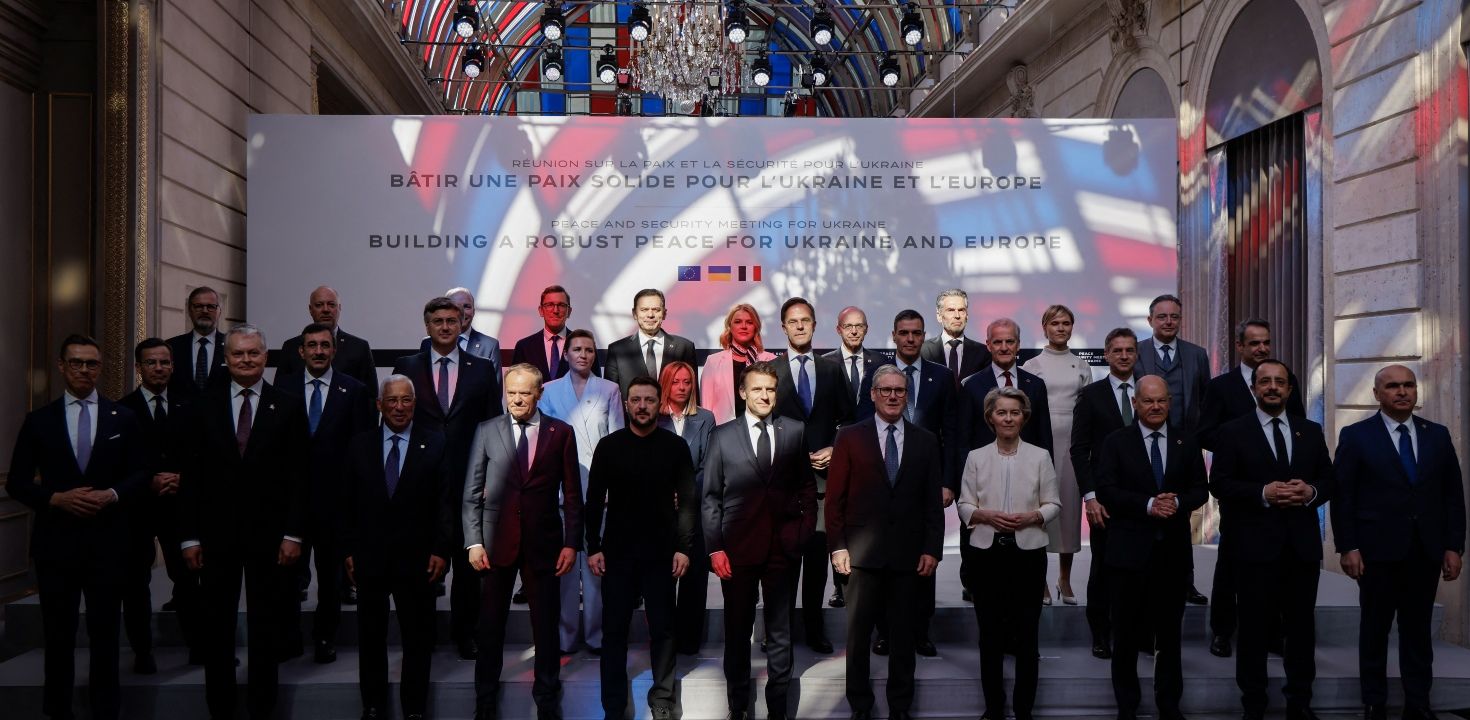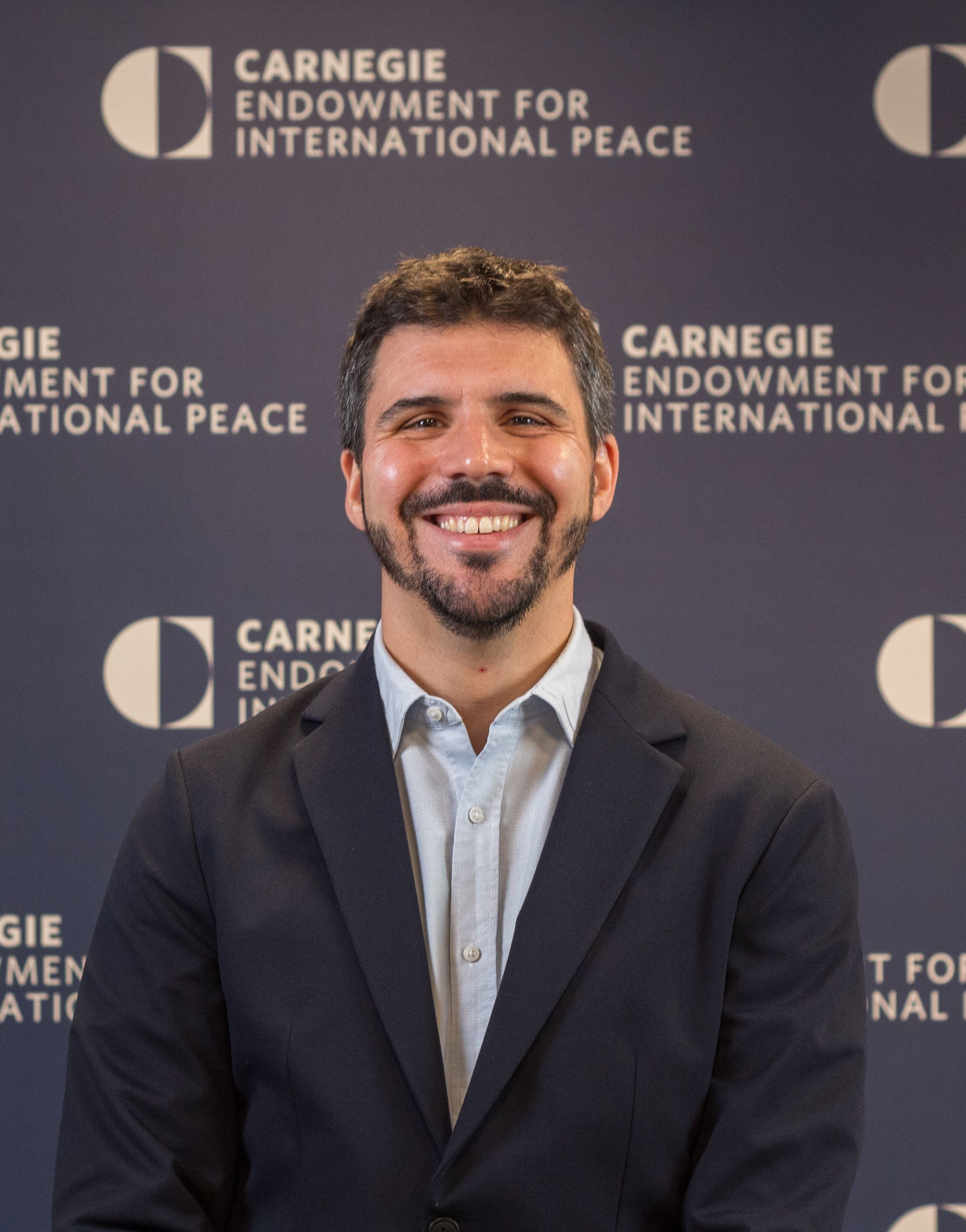The use of technology to mobilize Russians to vote—a system tied to the relative material well-being of the electorate, its high dependence on the state, and a far-reaching system of digital control—is breaking down.
Andrey Pertsev
{
"authors": [
"Marc Pierini",
"Francesco Siccardi"
],
"type": "commentary",
"centerAffiliationAll": "",
"centers": [
"Carnegie Endowment for International Peace",
"Carnegie Europe"
],
"englishNewsletterAll": "",
"nonEnglishNewsletterAll": "",
"primaryCenter": "Carnegie Europe",
"programAffiliation": "",
"programs": [],
"projects": [],
"regions": [
"Europe",
"Russia",
"Türkiye",
"Ukraine",
"Western Europe"
],
"topics": [
"Defense",
"EU",
"Foreign Policy",
"Security"
]
}
Source: Getty
European countries are working to improve weapons supplies to Ukraine and boost Europe’s security architecture. Including Turkey and its powerful defense industry in these schemes is a priority, but doing so raises moral and strategic concerns.
The last week of March was a momentous one for Europe. On the morning of Sunday, March 23, the Turkish authorities arrested Ekrem İmamoğlu, the mayor of Istanbul and President Recep Tayyip Erdoğan’s most feared rival, on corruption charges. On March 25, a security breach in the U.S. defense establishment brutally illustrated how the current U.S. administration sees Europeans: as “pathetic freeloaders” who should not be “bailed out.” And on March 27, the second meeting of the France- and UK-led coalition of the willing to bolster support for Ukraine ended with limited progress on the deployment of reassurance forces on Ukrainian territory.
A common thread binds these events together: They are a powerful reminder of the new reality in which European leaders operate. In responding to Russia’s aggressive posture, Europe is alone. The United States will not come to the rescue—quite the opposite: Initiatives such as the coalition of the willing or the European Commission’s ReArm Europe program would not be needed had U.S. President Donald Trump not decided to sabotage the foundations of the international liberal order the United States has ruled over for the past eighty years.
Among EU countries, Hungary and Slovakia stand out as Russia-friendly absentees in the coalition of the willing. But because of its foreign policy activism, geographic location, and ongoing domestic crisis, it is Turkey whose participation raises the biggest misgivings. Ankara’s inclusion poses both a moral issue and a strategic risk.
Europe’s latest efforts are as much about defending European values as about containing Russia’s territorial and military ambitions. Unless it is underpinned by basic principles of democracy, justice, and accountability, any emerging security configuration in Europe will be unsustainable. To put it bluntly, it is a case of the rule of law versus brute force.
European policymakers therefore need to be clearheaded about the type of alliances they want to assemble to secure a peaceful and prosperous future for their continent. Europe’s foundational values have traditionally been at the core of the EU’s power of attraction, and it is striking that they are simultaneously under attack from Washington, Moscow, and Ankara.
The deterioration of Turkey’s rule of law is hardly new. For over a decade, the Turkish government has systematically dismantled the system of checks and balances that regulated the country’s democratic institutions.
First came the repression of the Gezi Park movement in 2013, when a sit-in against the government’s plan to demolish a park and build a shopping mall turned into one of the largest antigovernment protests in Turkish history. In the months and years that followed, thousands were arrested amid purges in the police, the judiciary, and the public administration, while the government harassed independent media, civil society organizations, free thinkers, lawyers, and even business representatives who had criticized Erdoğan’s economic policy.
Three years later, the July 2016 failed military coup was, according to Erdoğan, a “gift from God” and an opportunity to redesign the country’s governance and get rid of his opponents. The two-year state of emergency that followed the failed coup further curtailed civil liberties for most of the population.
Issues of the rule of law and human rights are some of the reasons that brought relations between Brussels and Ankara to a standstill. Besides mutually beneficial deals on migration—Turkey has agreed to keep refugees out of the EU in exchange for over €9 billion ($9.7 billion)—EU-Turkey relations have shrunk to a minimum and become increasingly transactional. The idea that Turkey could become an EU member, once the polestar of the relationship, has been effectively abandoned.
İmamoğlu’s arrest marks another milestone in Turkey’s shift to an authoritarian style of government. And while a protest movement is growing across the country—hundreds of thousands gathered in Istanbul on March 29—the authorities have banned public demonstrations and media reporting, arrested over 1,400 people, and even expelled a veteran BBC reporter for being “a threat to public order.” The social media accounts of the protest leaders have been temporarily deactivated. In the meantime, over 15 million people voted in the Republican People’s Party (CHP) presidential primary to elect the jailed Istanbul mayor as the party’s candidate for Turkey’s 2028 presidential election.
It is striking that the leadership’s complaints against İmamoğlu—that there were irregularities with his university diploma (a requirement for Turkish presidential candidates) and that he had rigged public tenders, tampered with ballot counts, and held talks with Kurdish politicians—are a mirror image of those launched against Erdoğan during his twenty-two years as prime minister and president by judges, opposition media, and disgruntled political allies.
Russia’s 2022 full-scale invasion of Ukraine altered the geopolitical calculus in Ankara and Brussels. Turkey has a tradition of cultivating an ambivalent relationship with Russia—torn between its energy dependence on Moscow, the personal and political affinities between Erdoğan and Russian President Vladimir Putin, and geopolitical rivalries in the Black Sea region, the South Caucasus, Syria, and Libya.
As a member of NATO, Turkey is safely anchored to a Western-oriented system of alliances and security guarantees. But the country has weakened NATO’s concept of a missile-defense shield by purchasing Russian S-400 missile systems, which since 2019 have meant the absence of equivalent NATO hardware along some 700 kilometers (435 miles) of Russia’s southern flank. Similarly, in political terms, Turkey has established a strategic partnership with Hungary, the only EU country that systematically opposes the bloc’s policy decisions on Russia.
For Europeans, maintaining unity against Russia is critical at a time when the continent’s security is under threat. The United States’ withdrawal from its traditional role of guarantor of European security makes the case for a rapprochement between Turkey and its European counterparts.
Turkey has a lot to offer for the protection of Europe. Ankara has already signaled its availability to send peacekeeping troops to Ukraine. It has the second-biggest conventional army in NATO. Its defense industry has made big leaps forward in recent decades, becoming flexible in terms of production capacity and innovative in terms of technology. Today, Turkish defense companies produce a host of NATO-standard equipment—from artillery and shells to infantry fighting vehicles, armed drones, and navy ships.
Ankara also has a lot to gain from an alliance with like-minded European countries. If left unchecked, Russia could pose a serious threat to Turkey, given its activism in the Black Sea and the South Caucasus. Turkey’s vibrant defense industry would benefit enormously from its inclusion in the Buy European spending scheme being prepared by the European Commission—not only financially but also thanks to the possible lifting of various embargoes on sensitive components. And because of the level of integration between the two blocs, Turkey would benefit from some European support for its economy.
However, Turkey’s participation in a renewed European defense effort raises several questions. First, since February 2022, Turkey has never imposed sanctions on Russia. As a result, Moscow has kept exporting crude oil to Turkey, where it is refined and then exported as Turkish products. The hard-currency income this trade brings in for Russia has helped finance its war on Ukraine, despite constant efforts by NATO countries to track and fight sanctions-evasion schemes.
Second, the tight economic links built by Turkey and Russia have resulted in a dense mesh of agreements. Russia is Turkey’s largest supplier of natural gas through the TurkStream pipeline. Russia builds, owns, and will operate a nuclear power plant in Akkuyu and sends 7 million tourists to Turkish Mediterranean resorts every year. Conversely, Russia is the destination of a large share of Turkish agricultural exports and a favorable business environment for Turkish construction companies.
If Turkey were to become a substantial provider of weaponry to Ukraine and Western European countries, it might be subject to Russian retaliation. This is not a hypothetical view: It would not be the first time that Moscow has hit back at Ankara with reduced trade and tourism flows to exert pressure. Such possible action represents a tangible risk for the coalition of the willing, especially at a time when the Turkish government is in crisis and exposed to an exacerbated economic downturn.
A third issue relates to the governance of the Turkish Straits. Since March 25, according to the White House, “the United States and Russia have agreed to ensure safe navigation, eliminate the use of force, and prevent the use of commercial vessels for military purposes in the Black Sea.” On the same day, U.S. Secretary of State Marco Rubio hosted his Turkish counterpart, Hakan Fidan. Little has transpired of their talks, but any agreement by third countries on safe navigation in the Black Sea is a matter of direct concern for Ankara, which has rights to restrict access to the straits under the terms of the 1936 Montreux Convention. The EU will also want to be involved in any possible arrangement between Russia, the United States, and Turkey, given that two of its member states—Bulgaria and Romania—are littoral states and trade is an EU competence.
If they want to achieve clarification with Turkey, Europeans could put forward a global package that includes three broad elements. The first would consist of a mutual political commitment to reaffirm the preamble of the North Atlantic Treaty, Ankara’s implementation of the judgments of the European Court of Human Rights, and a return to UN-led discussions on the divided island of Cyprus. The second component would be the launch of negotiations on an improved visa regime and a deeper EU-Turkey Customs Union. The third would comprise the integration of Turkey’s armaments supplies into the coalition of the willing, the deployment of Turkish military assets in selected Central European countries and the Black Sea, and European participation in Turkey’s defense architecture once the S-400 systems have been neutralized.
Such a package would ensure moral and strategic consistency, though it is likely to be rejected by Ankara. Short of these elements, Turkey’s interaction with the coalition should be limited to individual countries’ purchases of Turkish-made armaments outside EU funding.
Europeans are used to Ankara’s foreign policy ambiguities. But in designing a new system of alliances to protect a future ceasefire deal in Ukraine and contain Russia’s expansionism in such critical times, they have to carefully balance Turkey’s assets and liabilities.
Accepting Turkey into the coalition of the willing because of its weapons supplies while ignoring the dramatic degradation of its rule of law would give a free pass to Moscow’s and Washington’s aggressive stances. That would allow Turkey’s leadership to score a success for its style of governance and, ultimately, hurt Europe’s values and principles.

Senior Fellow, Carnegie Europe
Pierini is a senior fellow at Carnegie Europe, where his research focuses on developments in the Middle East and Turkey from a European perspective.

Francesco Siccardi
Deputy Director, Carnegie Europe
Francesco Siccardi is deputy director at Carnegie Europe.
Carnegie does not take institutional positions on public policy issues; the views represented herein are those of the author(s) and do not necessarily reflect the views of Carnegie, its staff, or its trustees.
The use of technology to mobilize Russians to vote—a system tied to the relative material well-being of the electorate, its high dependence on the state, and a far-reaching system of digital control—is breaking down.

Andrey Pertsev
New data from the 2026 Indian American Attitudes Survey show that Democratic support has not fully rebounded from 2020.


Sumitra Badrinathan, Devesh Kapur, Andy Robaina, …
France and Germany’s failure to agree on the Future Combat Air System (FCAS) raises questions about European defense. Amid industrial rivalries and competing strategic cultures, what does the future of European military industrial projects look like?

Rym Momtaz, ed.
Putin is stalling, waiting for a breakthrough on the front lines or a grand bargain in which Trump will give him something more than Ukraine in exchange for concessions on Ukraine. And if that doesn’t happen, the conflict could be expanded beyond Ukraine.

Alexander Baunov
As Moscow looks for opportunities to build inroads on the continent, governments in West and Southern Africa are identifying new ways to promote their goals—and facing new risks.



Nate Reynolds, ed., Frances Z. Brown, ed., Frederic Wehrey, ed., …